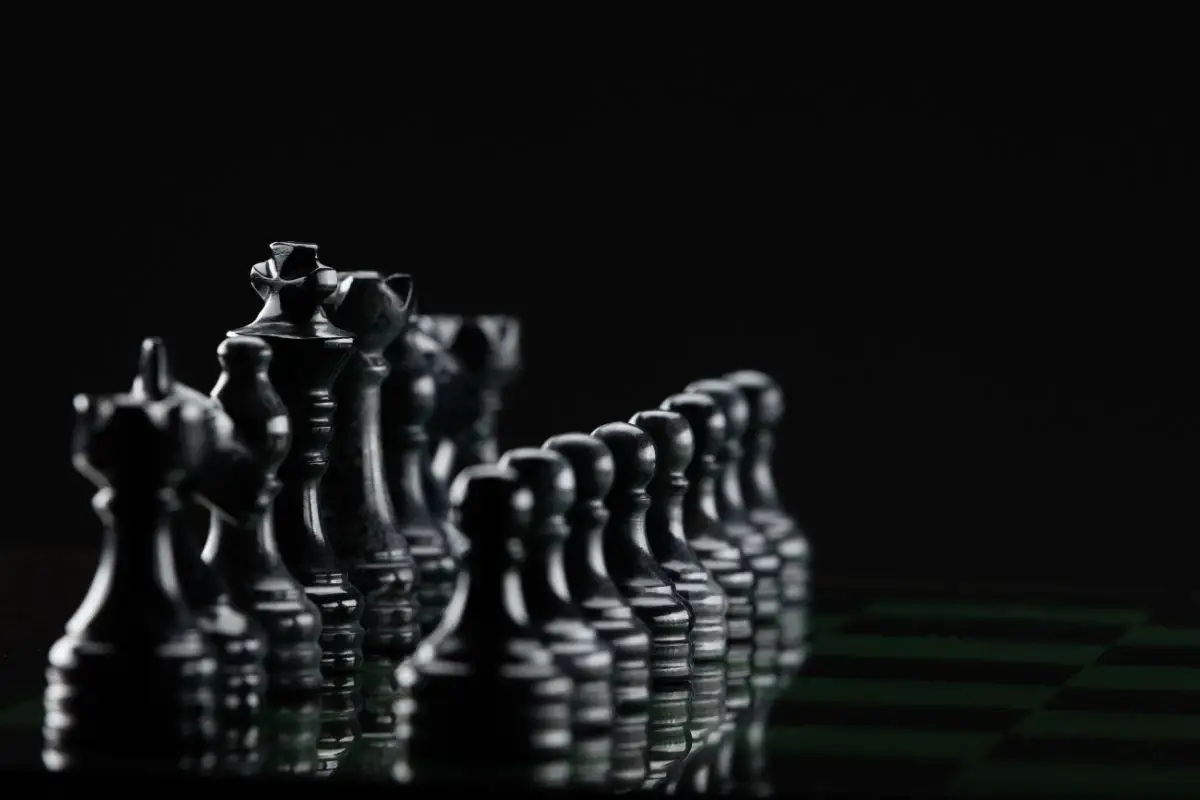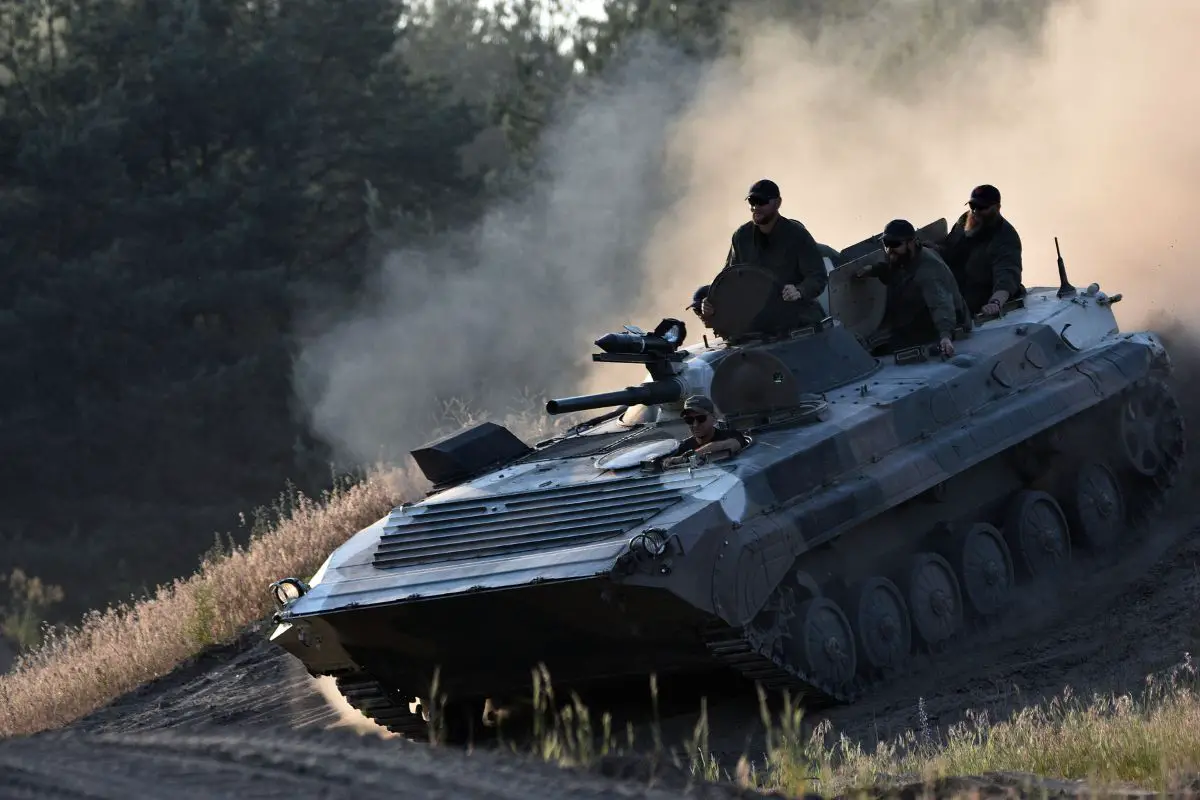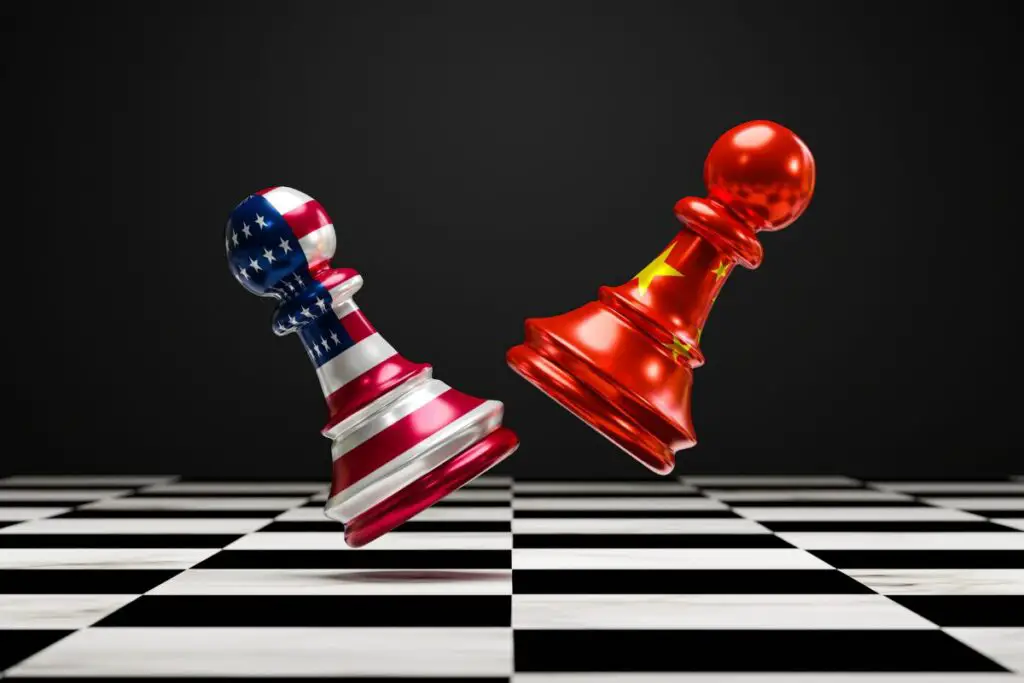Chess has often been compared to war, as both involve strategic thinking, careful planning, and the use of tactics to outmaneuver the opponent. However, it is important to note that chess is a game, while war is a serious and often violent conflict between nations or groups.
In chess, the objective is to checkmate the opponent’s king, while in war, the objective is to achieve political or military goals. Chess is a controlled and non-violent competition, whereas war is a dangerous and potentially deadly conflict.
In this article, we look at the similar strategies deployed in both chess and war, and discuss some of their differences. Let’s jump right in
Chess And War Strategy

Chess and war share some similarities in terms of strategy and tactics, but they also have important differences.
In chess, players strive to outmaneuver their opponents by carefully planning their moves, anticipating their opponent’s responses, and adapting their strategy as the game progresses. Chess players often focus on controlling the center of the board, developing their pieces, and creating threats that force their opponent to react defensively.
Similarly, in war, commanders seek to achieve their objectives by carefully planning their operations, anticipating their opponent’s moves, and adapting their strategy as the situation on the battlefield changes. Military strategy often involves seizing key terrain, cutting off enemy supply lines, and creating conditions that force the enemy to react defensively.
Both chess and war require players to think strategically, to anticipate their opponent’s moves, and to adjust their plans as circumstances change. Both also involve the use of tactics to gain an advantage over the opponent. In chess, tactics often involve creating threats that force the opponent to make a defensive move, while in war, tactics might include flanking maneuvers, ambushes, or surprise attacks.
However, there are also important differences between chess and war strategy. Chess is a game of limited scope, with a fixed number of pieces and a defined board. In war, commanders must deal with a much larger and more complex set of variables, including terrain, weather, logistics, and the actions of the enemy.
Additionally, in chess, there is a clear distinction between the players and their respective sides. In war, the distinction between friend and foe is often less clear, with civilians and non-combatants also caught up in the conflict.
Finally, it is important to remember that the consequences of war are much more significant and lasting than those of a chess game. While chess is a controlled and non-violent competition, war is a dangerous and potentially deadly conflict that can have long-term consequences for nations, societies, and individuals.
5 Chess Concepts Used In War

1. Initiative
In both chess and war, gaining and maintaining the initiative can be critical to success. In chess, the player who has the initiative has more control over the board and can dictate the pace and direction of the game. Similarly, in war, the side that seizes and maintains the initiative has more control over the battlefield and can dictate the pace and direction of the conflict.
2. Maneuver
Maneuver is also an important tactic in both chess and war. In chess, maneuvering involves moving pieces into position to attack or defend key squares, control the center of the board, or block the opponent’s pieces. In war, maneuvering involves moving troops into position to gain an advantage over the enemy, cut off supply lines, or take control of key terrain.
3. Feint
A feint is a deceptive move designed to mislead the opponent and create an advantage. In chess, a feint might involve making a move that appears to be a threat, but is actually a trap designed to lure the opponent into making a mistake. In war, a feint might involve making a diversionary attack or a false retreat to draw the enemy into a trap or expose a weakness.
4. Sacrifice
Sacrificing a piece or a unit can sometimes be a necessary tactic in both chess and war. In chess, sacrificing a piece can be a strategic move to create an opening or to gain a positional advantage. In war, sacrificing a unit might be necessary to achieve an objective or to divert the enemy’s attention away from a more important target.
5. Defend and counterattack
Finally, defending and counterattacking are tactics that are common to both chess and war. In chess, a player might defend their position by building a strong defense and then counterattacking when the opportunity arises. Similarly, in war, a defender might wait for the enemy to attack, then launch a counterattack to regain the initiative or to exploit a weakness in the enemy’s position.
Differences Between Chess Strategy and War Strategy
Here are 5 differences between the strategy of chess and war:
Here are five differences between chess strategy and war strategy:
1. Context
Chess is a game that is played in a fixed and controlled environment, while war is fought in a much more complex and unpredictable environment. In war, commanders must consider a wide range of factors, such as terrain, weather, logistics, and the actions of the enemy. Chess, on the other hand, is played on a board with a fixed set of rules and pieces.
2. Consequences
The consequences of chess are limited to the game itself, while the consequences of war can be far-reaching and long-lasting. Chess is a game that is played for entertainment or intellectual stimulation, while war is a deadly serious business with real-life consequences for individuals, societies, and nations.
3. Objectives
The objectives of chess and war are fundamentally different. In chess, the objective is to checkmate the opponent’s king, while in war, the objective is to achieve a political or military goal, such as capturing territory, eliminating enemy forces, or forcing a surrender.
4. Resources
Chess players have a fixed number of pieces to work with, while commanders in war must manage and allocate resources such as troops, weapons, and supplies. In chess, players must carefully manage their pieces to achieve their objectives, while in war, commanders must carefully manage their resources to achieve their objectives.
5. Time frame
Chess games usually last between 20 minutes to several hours, while wars can last for years or even decades. Chess strategy is focused on achieving a specific goal within a relatively short time frame, while war strategy is focused on achieving long-term goals and adapting to changing circumstances over a much longer time frame.
Use Of Chess In Military Operations
While chess can be used as a training tool for military strategists, it is not typically used directly in the planning or execution of military operations.
Chess and war have some similarities in terms of strategy and tactics, and the study of chess can help develop critical thinking, problem-solving, and decision-making skills that are useful for military planners. However, war is a much more complex and unpredictable environment than a game of chess, and the consequences of military actions are much more significant.
Military planners use a variety of tools and methods to plan for war, including intelligence gathering, scenario analysis, risk assessment, and operational planning. While some of these tools may involve elements of strategy and tactics similar to those found in chess, they are adapted to the specific needs and challenges of military operations.
In short, while chess may provide some useful insights into strategy and tactics, it is not a direct tool used by military planners in the planning or execution of military operations.
Final Thoughts
Chess and war are two very different activities with distinct purposes and consequences. While they share some similarities in terms of strategy and tactics, there are also important differences in context, objectives, resources, and time frame.
Chess is a game of intellect and skill, played for entertainment or intellectual stimulation. It can be used as a training tool for military strategists, but it is not typically used directly in the planning or execution of military operations.
War, on the other hand, is a deadly serious business with real-life consequences for individuals, societies, and nations. It involves complex and multifaceted objectives, a wide range of resources to manage and allocate, and a long-term time frame that requires flexibility and adaptability.
While there may be some value in studying the similarities between chess and war, it is important to recognize that they are fundamentally different activities with distinct purposes and consequences.


